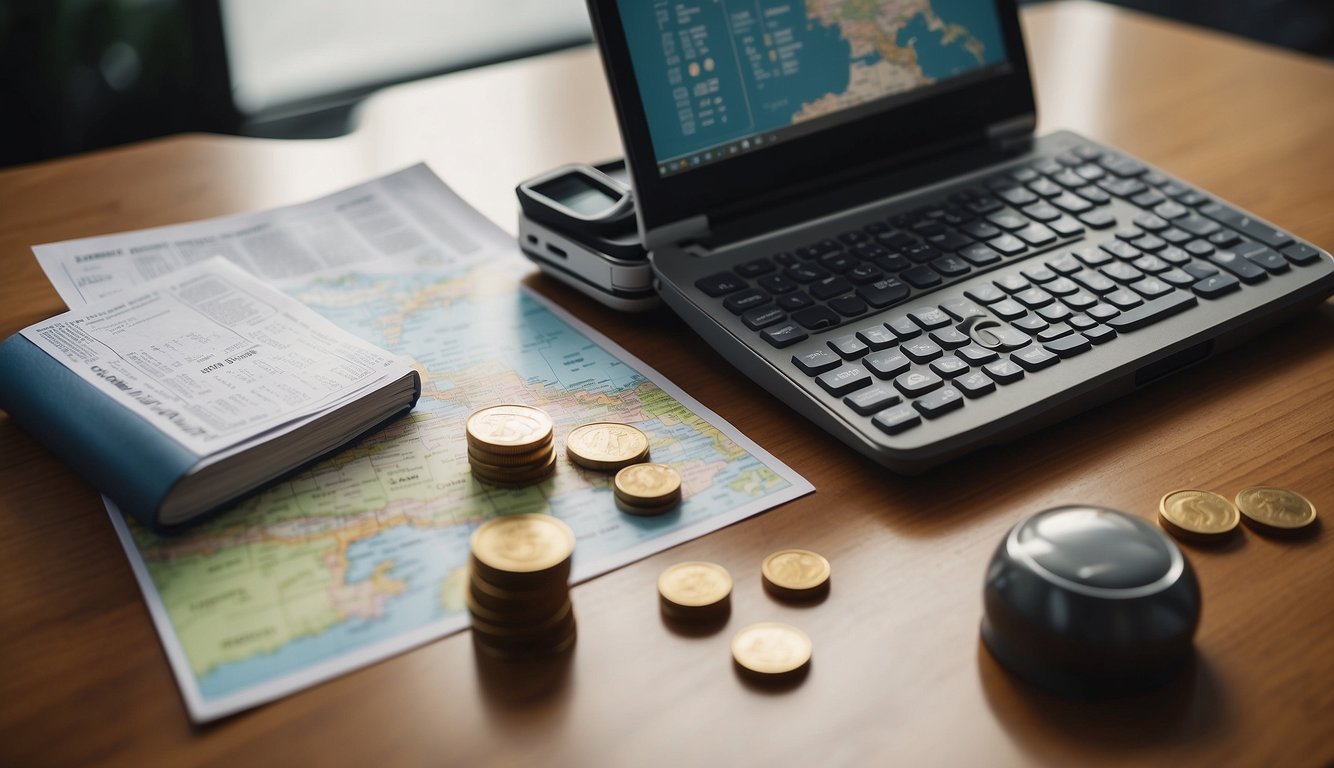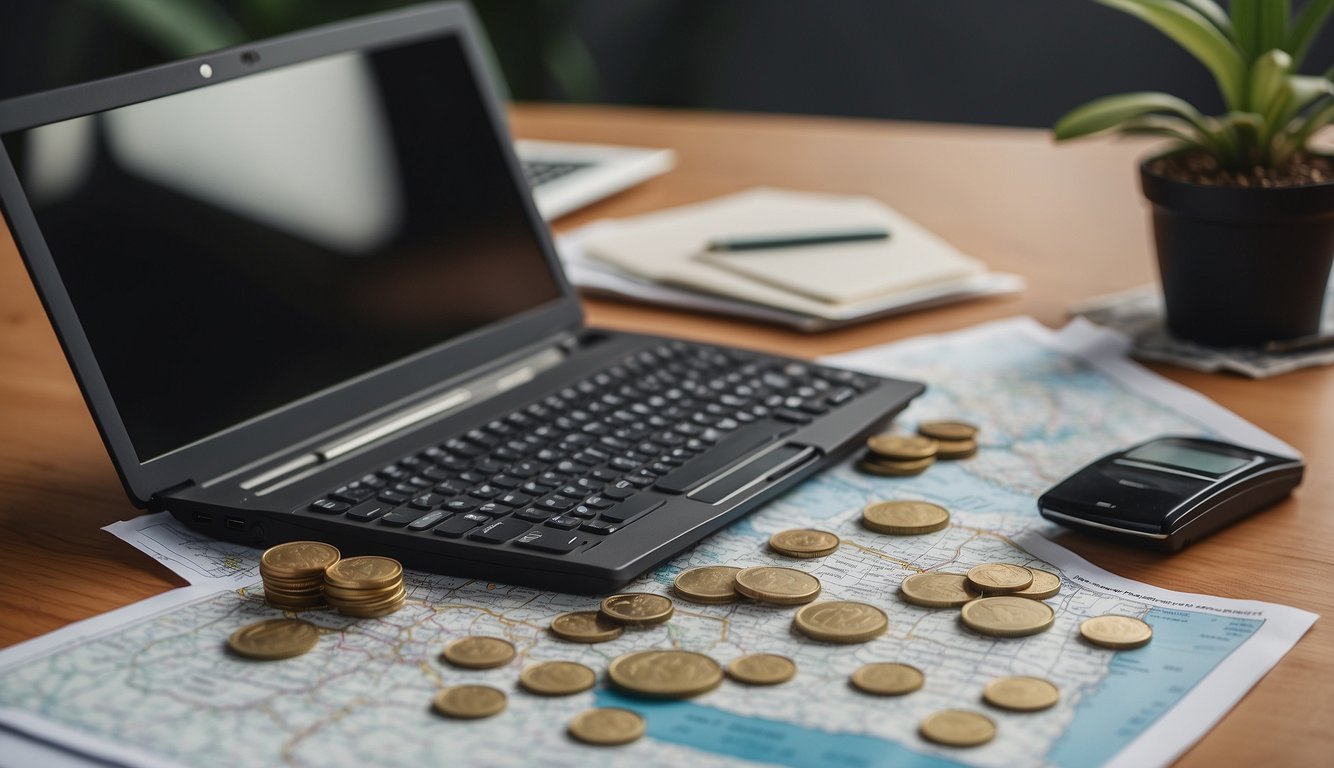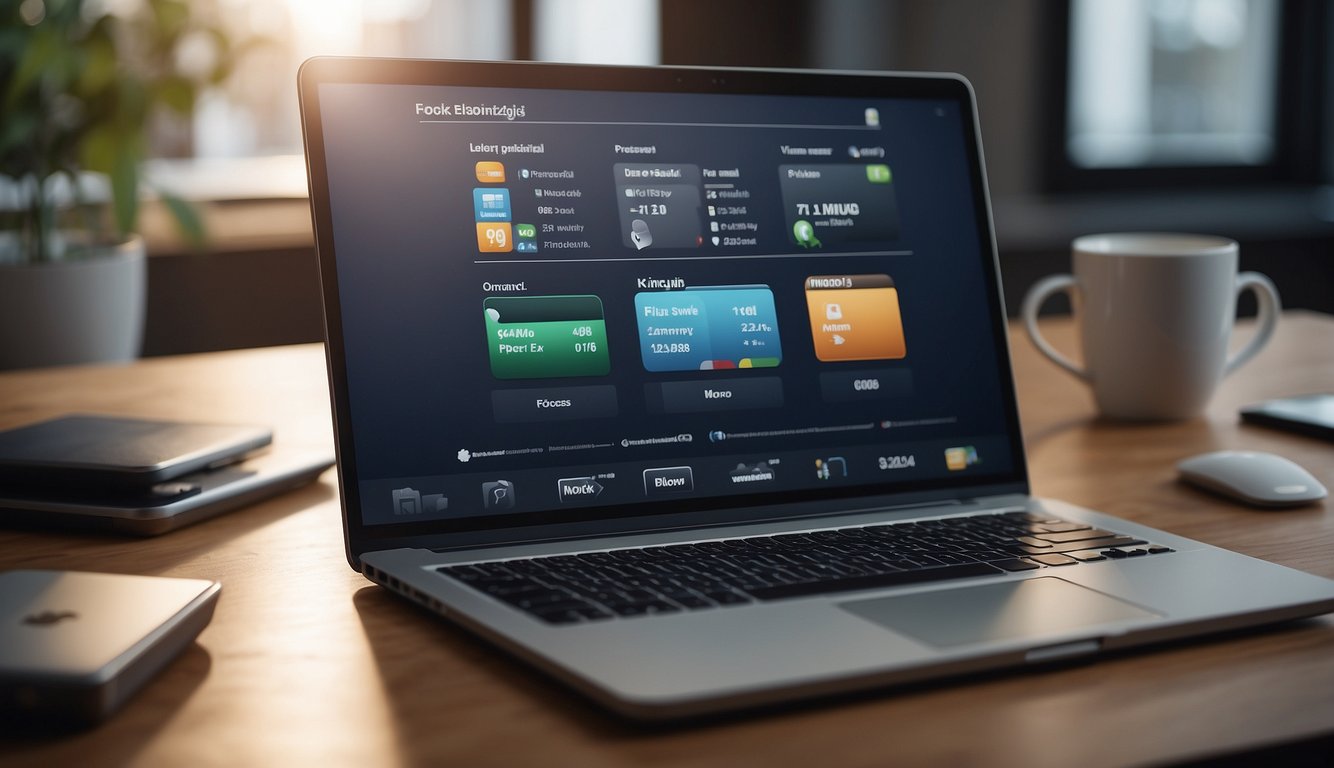
If you’re living in Singapore, you know that the cost of living can be quite high. It can be challenging to save money in Singapore, especially if you’re not familiar with the cost of goods and services in Singapore. But don’t worry, we’ve got you covered. In this article, we’ll share seven tips on how to save money in Singapore so you can enjoy life without breaking the bank.
First, let’s take a look at Singapore’s economy and cost of living. Singapore is one of the most expensive cities in the world, but it also has one of the highest standards of living. You’ll need to adjust your lifestyle and spending habits to fit in with the local culture. Understanding the cost of living in Singapore is crucial to creating a budget that works for you.
Now that you have a better understanding of Singapore’s economy and cost of living let’s dive into some practical tips on how to save money in Singapore. Whether you’re a student, a young professional, or a family, there are plenty of ways to save money without sacrificing your lifestyle. From setting up a strategic savings plan to optimising credit and loans, we’ll cover it all.
Key Takeaways
- Understand Singapore’s economy and cost of living to create a budget that works for you.
- Set up a strategic savings plan, optimise credit and loans, and manage your daily expenses to save money.
- Make lifestyle adjustments for long-term savings, prepare for the future, and maximise rewards and cashback to save money while still enjoying life.
How to Save Money in Singapore: Understanding the Economy and Cost of Living

If you’re living in Singapore, you’re probably aware of the city-state’s high cost. Singapore is known for its strong economy and high standard of living, but it comes with a price. Understanding the Singaporean economy and cost of living is key to effectively managing your finances.
Thriving Economy
Singapore has a thriving economy driven by its export-oriented industries, including electronics, chemicals, and biomedical sciences. The country has a highly skilled workforce and is known for its business-friendly environment.
As a result, Singapore has one of the highest per capita incomes in the world.
High Expenses
However, with a high income comes high expenses. Singapore is also known for having one of the highest costs of living in the world. The costs of housing, transportation, and food are exceptionally high. Inflation is also a concern in Singapore, with prices rising steadily over the years.
Expenses and Income
To effectively manage your finances, it’s essential to understand your expenses and income. Create a budget that outlines your monthly income and expenses. This will help you identify areas where you can cut back on costs and save money.
Spending Habits
One way to save money is to be mindful of your spending habits. Avoid impulse purchases and stick to your budget. Look for ways to save money on everyday expenses, such as cooking at home instead of eating out or taking public transportation instead of driving.
Schemes and Subsidies
Another way to save money is to take advantage of government schemes and subsidies. The Singaporean government offers a range of schemes and subsidies to help Singaporeans manage their expenses, such as the GST Voucher Scheme and the Workfare Income Supplement Scheme.
By understanding the Singaporean economy and cost of living, you can make informed decisions about your finances and effectively manage your expenses.
How to Save Money in Singapore: Setting Up a Strategic Savings Plan

Saving money is not always easy, but it is an essential part of achieving your financial goals. By setting up a strategic savings plan, you can take control of your finances and make sure that you are putting money aside for the things that matter most. Here are some tips to help you get started:
Assess Your Finances
Before you can start saving money, you need to have a clear understanding of your finances. This means taking a close look at your income, expenses, and debts. You can use tools like budgeting apps or spreadsheets to help you track your spending and identify areas where you can cut back.
Create a Budget That Works
Once you have a good idea of your finances, you can create a budget that works for you. This should include all of your income and expenses, including bills, groceries, and entertainment. Make sure to set aside money for savings and emergency funds as well. By sticking to a budget, you can avoid overspending and make sure that you are putting money towards your goals.
Set Savings Goals
Having a specific savings goal can help motivate you to save money. Whether you are saving for a down payment on a home, a vacation, or retirement, having a clear goal in mind can help you stay on track. You can break down your savings goal into smaller, more manageable milestones, and celebrate each time you reach one.
When it comes to setting up a strategic savings plan, having a savings account can be a great help. A savings account is a bank account that is designed specifically for saving money. It typically offers a higher interest rate than a regular bank account, which means that your money can grow faster. You can set up automatic transfers from your checking account to your savings account to make saving money even more accessible.
By following these tips, you can set up a strategic savings plan that works for you. Remember to track your progress, adjust your budget as needed, and celebrate your successes along the way. With a little bit of effort and planning, you can achieve your financial goals and build a secure future for yourself and your family.
How to Save Money in Singapore: Smart Shopping Habits

Are you tired of overspending on your shopping trips? Fear not, there are ways to save money while still getting everything you need. Here are some smart shopping habits that you can adopt to save money.
Embrace Second-Hand Shopping
Buying second-hand items is a great way to save money and reduce waste. You can find great deals on items such as clothes, furniture, and electronics on platforms like Carousell. Not only will you save money, but you will also be doing your part for the environment.
Utilise Discount Apps and Credit Cards
There are many apps that offer discounts and cashback on your purchases. ShopBack and Burpple are great examples of such apps. You can also use credit cards that offer rewards and cashback on your purchases. Make sure to read the terms and conditions before using these apps and credit cards to ensure that you are getting the best deal.
Plan Your Shopping List Carefully
Planning your shopping list can help you avoid impulse purchases and save money. Make a list of items that you need before heading to the store and stick to it. You can also look for online promotional codes or wait for warehouse sales to get the best deals on your groceries and other items.
By adopting these smart shopping habits, you can save money on your shopping trips and still get everything you need. So, start making your shopping list and embrace these tips to become a savvy shopper!
How to Save Money in Singapore: Managing Daily Expenses

Managing your daily expenses is a crucial step towards saving money in Singapore. By cutting down on unnecessary expenses, you can free up more money for savings and investments. Here are some tips to help you manage your daily expenses:
Cut Down on Utilities and Transportation Costs
One of the biggest expenses in Singapore is utilities and transportation. To save money, consider using energy-efficient appliances and turning off lights and electronics when not in use. You can also save money on transportation by taking advantage of transport discounts and using public transportation instead of taxis or private cars.
Dine Out Less, Cook More
Eating out can be expensive, especially in Singapore where food prices are high. Instead of dining out, try cooking at home. You can save money by buying groceries in bulk and preparing meals in advance. Not only is cooking at home cheaper, but it’s also healthier and more enjoyable.
Rethink Your Subscriptions
Are you subscribed to multiple streaming services, gym memberships, or other monthly subscriptions? If so, it’s time to rethink your subscriptions. Consider unsubscribing from services you don’t use or need. You can also use budgeting apps to track your subscriptions and cancel them when necessary.
Overall, managing your daily expenses is an important step towards saving money in Singapore. By cutting down on unnecessary expenses, you can free up more money for savings and investments. Use these tips to help you save money and reach your financial goals.
How to Save Money in Singapore: Optimising Credit and Loans

If used wisely, credit cards can be a great tool for saving money. However, if not used responsibly, credit cards can lead to high interest charges and debts. To use credit cards wisely, you should only use them for purchases you can afford to pay off in full every month. This way, you can take advantage of rewards and cashback offers without incurring interest charges.
Use Credit Cards Wisely
When choosing a credit card, look for one that offers rewards or cashback on purchases you make regularly. For example, if you frequently dine out, look for a card that offers cashback or rewards for dining expenses. Additionally, some credit cards offer discounts on petrol or grocery purchases, which can help you save money on everyday costs.
To avoid interest charges, always pay your credit card bill in full and on time every month. Late payments can result in additional fees and higher interest rates, which can quickly add up and lead to debt.
Consider Refinancing Loans and Mortgages
If you have outstanding loans or a mortgage, refinancing can be a great way to save money on interest charges. Refinancing involves taking out a new loan to pay off your existing loan(s) at a lower interest rate.
When refinancing, be sure to shop around and compare interest rates from different lenders. Additionally, consider the fees associated with refinancing, as they can add up and negate any savings from a lower interest rate.
Refinancing your home loan can also help you save money on monthly mortgage payments. However, be sure to consider any penalties associated with early repayment of your existing loan.
Optimising your credit and loans can help you save money on interest charges and reduce your debt. By using credit cards wisely and considering refinancing options, you can take control of your finances and achieve your savings goals.
How to Save Money in Singapore: Lifestyle Adjustments for Long-Term Savings

Saving money requires a change in lifestyle, but it doesn’t have to be a painful experience. In fact, adopting a minimalist lifestyle can be liberating and fulfilling. Here are some lifestyle adjustments that you can make to save money in the long run.
Adopt a Minimalist Lifestyle
Minimalism is a lifestyle that encourages you to live with less. It’s about simplifying your life and focusing on what’s truly important. By adopting a minimalist lifestyle, you can reduce your expenses and save money. Here are some tips to get started:
- Declutter your home and sell or donate items that you no longer need.
- Avoid buying unnecessary items and focus on buying only what you need.
- Buy quality items that will last longer rather than cheap items that need to be replaced frequently.
Avoid Temptation and Impulse Buys
Temptation and impulse buys can quickly derail your savings plan. It’s important to be aware of your triggers and avoid situations that may lead to overspending. Here are some tips to help you avoid temptation and impulse buys:
- Use the 24-hour rule. If you see something you want to buy, wait 24 hours before making the purchase. This will give you time to think about whether you really need the item.
- Splurge on experiences, not things. Instead of buying material possessions, spend your money on experiences that will enrich your life.
- Just say no. If you’re invited to an event or activity that you can’t afford, don’t be afraid to decline.
Invest in Your Health and Wellbeing
Investing in your health and well-being can actually save you money in the long run. By taking care of yourself, you can prevent health problems that may require expensive medical treatment. Here are some tips to help you invest in your health and wellbeing:
- Exercise regularly. You don’t need a gym membership to stay active. You can go for a walk, run, or bike ride in your neighbourhood.
- Get regular check-ups. By catching health problems early, you can avoid expensive medical bills down the road.
- Treat yourself to a massage. A massage can help reduce stress and prevent injuries.
By making these lifestyle adjustments, you can save money in the long run without sacrificing your quality of life. You can also adopt other habits such as adopting a pet, carpooling, group dining and meeting up for coffee/drinks to save money while still enjoying life.
How to Save Money in Singapore: Preparing for the Future

Saving money is not just about the present, but also about preparing for the future. It’s important to have a plan in place for any unexpected expenses that may arise. Here are some tips to help you prepare for the future.
Build an Emergency Fund
An emergency fund is a savings account that is set aside for unexpected expenses, such as medical bills or car repairs. It’s essential to have at least three to six months’ worth of living expenses saved in your emergency fund. This will give you peace of mind, knowing that you are prepared for any unexpected expenses that may arise.
To build an emergency fund, you can start by setting aside a small amount of money each month. You can do this by creating a budget and allocating a portion of your income to your emergency fund. You can also set up automatic transfers from your salary account to your savings account each month.
Understand Investing and Insurance
Investing and insurance are two essential aspects of financial planning. Investing can help you grow your money over time, while insurance can protect you from unexpected expenses.
When it comes to investing, it’s essential to understand the different types of investments available, such as stocks, bonds, and mutual funds. You should also consider your risk tolerance and investment goals when choosing investments.
Insurance policies can provide financial protection for you and your family in the event of an unexpected event, such as an illness or accident. You should consider different types of insurance policies, such as health insurance, life insurance, and disability insurance, to ensure that you are adequately covered.
By building an emergency fund and understanding investing and insurance, you can prepare for the future and ensure that you are financially secure.
How to Save Money in Singapore: Maximising Rewards and Cashback

If you’re looking to save money in Singapore, maximising your rewards and cashback is a great way to do it. There are several ways to do this, and we’ve compiled a list of tips to help you get started.
Choose the right credit card
Choosing the right credit card is crucial when it comes to maximising your rewards and cashback. Look for a card that offers rewards or cashback on the things you spend the most money on, such as dining, groceries, or transport. You should also consider the annual fee and interest rate, as these can affect your overall savings.
Join loyalty programs
Joining loyalty programs can also help you maximise your rewards and cashback. Many retailers and service providers offer loyalty programs that give you points or cashback for your purchases. These programs can be especially beneficial if you frequent a particular store or service provider.
Use cashback apps
Cashback apps are another way to maximise your rewards and cashback. These apps offer cashback on your purchases at participating retailers, and some even offer cashback on your credit card spending. Look for apps that offer cashback on the things you spend the most money on, such as groceries or dining.
Take advantage of dining deals
Dining deals are a great way to save money on food while also earning rewards or cashback. Many credit cards and loyalty programs offer dining deals at participating restaurants, which can give you discounts or cashback on your meals.
Shop smart
When shopping, look for stores that offer rewards or cashback programs. Many retailers offer loyalty programs that give you points or cashback for your purchases, and some even offer special discounts or promotions for cardholders.
Say no to unnecessary expenses
One of the best ways to maximise your rewards and cashback is to say no to unnecessary expenses. Avoid impulse purchases and unnecessary subscriptions, and focus on the things that are truly important to you. This will help you save money and maximise your rewards and cashback.
Travel smart
If you travel frequently, look for ways to maximise your rewards and cashback on your travel expenses. Many credit cards offer rewards or miles for travel expenses, and some loyalty programs offer discounts or cashback on flights and hotels. You can also look for travel deals on sites like Groupon or Entertainer, which can help you save money on your travel expenses.
By following these tips, you can maximise your rewards and cashback and save money in Singapore.
How to Save Money in Singapore: Effective Use of Technology in Saving

Technology can be a powerful tool in helping you save money. Here are some tips on how to use technology effectively to help you save money in Singapore:
Budgeting Apps
Budgeting apps can help you keep track of your expenses and income. By tracking your spending, you can identify areas where you can cut back and save money. Some popular budgeting apps in Singapore include Seedly and Money Lover.
Shopping List Apps
Shopping list apps can help you plan your purchases and avoid impulse buys. By creating a shopping list, you can stick to your budget and avoid overspending. Some popular shopping list apps in Singapore include Bring! and Out of Milk.
Online Promotional Codes
Using online promotional codes can help you save money when shopping online. Many retailers in Singapore offer promotional codes that can be used to get discounts on your purchases. You can find these codes by searching online or by following your favourite retailers on social media.
Credit Cards
Credit cards can be a useful tool for saving money if used responsibly. Many credit cards in Singapore offer cashback or rewards on your purchases. By using a credit card that offers cashback or rewards, you can save money on your purchases. However, it is important to pay off your credit card balance in full each month to avoid interest charges.
Tracking Your Expenses
Tracking your expenses can help you identify areas where you can cut back and save money. There are many apps and tools available that can help you track your expenses, including PocketSmith and Spendee.
Social Media
Following your favourite retailers on social media can help you stay up-to-date on the latest promotions and deals. Many retailers in Singapore offer exclusive discounts and promotions to their social media followers.
Unsubscribe
Unsubscribing from promotional emails can help you avoid temptation and save money. By reducing the number of promotional emails you receive, you can avoid the temptation to make impulse purchases and save money in the process.
How to Save Money in Singapore: Socialising on a Budget

One of the biggest expenses in Singapore is socialising. However, you don’t have to break the bank to have a good time. Here are some tips on how to socialise on a budget:
1. Meeting up
When meeting up with friends, suggest free or low-cost activities such as going for a walk, having a picnic, or visiting a museum. Not only will you save money, but you’ll also get to explore new places.
2. Group Dining
Dining out with friends can be expensive, but you can save money by splitting the bill or ordering family-style dishes. Look for restaurants that offer promotions or discounts for group dining. You can also consider cooking at home and having a potluck instead.
3. Dining Deals
Keep an eye out for dining deals on websites such as Groupon or Fave. You can save up to 50% on your meals by purchasing vouchers in advance. Just make sure to read the terms and conditions before purchasing.
4. Carpool
If you’re heading out with friends, consider carpooling to save on transportation costs. You can also use ride-sharing apps such as Grab or Gojek to split the cost of a ride.
5. Say No
Don’t feel pressured to say yes to every invitation. If you can’t afford to go out, it’s okay to decline. You can suggest an alternative activity that fits your budget or invite your friends over to your place instead.
6. Meeting up for coffee/drinks
Meeting up for coffee or drinks can add up quickly. Instead of going to a cafe or bar, suggest meeting up at a hawker centre or food court. You can also make coffee or drinks at home and invite your friends over.
7. Social Media
Follow your favourite restaurants and bars on social media to stay updated on their promotions and discounts. You can also join Facebook groups or online communities that share information on free or low-cost events in Singapore.
By following these tips, you can still enjoy socialising in Singapore without breaking the bank.
Frequently Asked Questions
What are some ingenious strategies for cutting down on daily expenses in Singapore?
There are many ways to cut down on daily expenses in Singapore. One of the most effective ways is to plan your meals and cook at home instead of eating out. You can also consider taking public transportation instead of using a personal car or taxi. Another way to save money is to look for deals and discounts when shopping for groceries or household items.
Can you share some effective methods to increase savings in the Lion City rapidly?
One effective method to rapidly increase savings in Singapore is to set a savings goal and stick to it. You can also consider opening a high-interest savings account that offers a good interest rate. Another way to increase savings is to invest in stocks or other financial instruments.
What’s the lowdown on the 50/30/20 budgeting principle, and how can it be applied in Singapore?
The 50/30/20 budgeting principle is a popular method for managing personal finances. It suggests that you allocate 50% of your income to necessities, 30% to discretionary spending, and 20% to savings. This principle can be applied in Singapore by setting a budget for your monthly expenses and making sure that you are saving at least 20% of your income.
Could you divulge how to maximise savings from one’s salary in Singapore?
To maximise savings from your salary in Singapore, you can start by setting a budget and sticking to it. You can also consider negotiating a higher salary or taking on freelance work to earn extra income. Another way to maximise savings is to avoid unnecessary expenses and focus on your long-term financial goals.
Where are the best spots to stash your cash and earn interest in Singapore?
There are many options for stashing your cash and earning interest in Singapore. One popular option is to open a savings account with a local bank that offers a reasonable interest rate. You can also consider investing in stocks, bonds, or other financial instruments that provide a higher return on investment.
Is having £100k in savings considered substantial in Singapore, and how can one achieve it?
Having £100k in savings is considered substantial in Singapore, as it can provide a good buffer for unexpected expenses and help you achieve your long-term financial goals. To achieve this, you can start by setting a savings goal and sticking to it. You can also consider investing in stocks or other financial instruments that offer a good return on investment.

